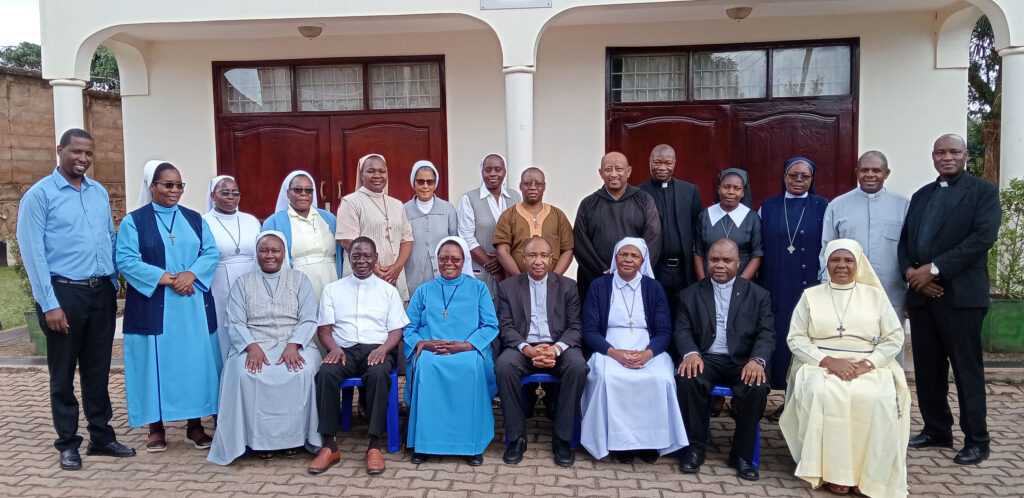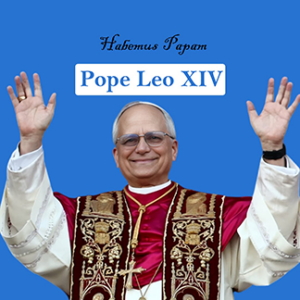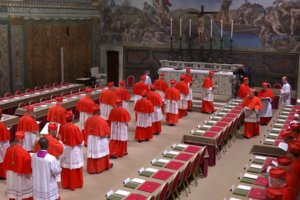AMECEA: Synod on Synodality Steadily Rekindles AMECEA Church

oplus_0
Fr. Emmanuel Chimombo and Benedict Mukoni
In a bid to continue strengthening collaboration and Synodality in the AMECEA Church, the Association of Member Episcopal Conferences in Eastern Africa (AMECEA) in collaboration with the Association of Consecrated Women in Eastern and Central Africa (ACWECA) convened a two-day workshop, 2 – 3 May 2024 at Association of Religious in Uganda, Secretariat (ARU) with Synod National Association contact persons to establish best practices of journeying together as a Church.
The Synod on Synodality is a three-year process (2021-2024) of listening, dialogue, and discerning together under the guidance of the Holy Spirit. It is worth noting that the first phase of the Synod prompted best practices that brought forth significant changes that enhanced the collaborative spirit among the pastoral agents. This collaboration is further extended to plenary meetings of bishops in respective conferences, religious associations, lay councils, youth, and other associations in the church.
Since the Synod began, there has been notable collaboration and coordination in responsibilities and activities within the church. This includes a unified pastoral approach from the national level down to dioceses and Small Christian Communities, as highlighted by the Synod contact team from Malawi.
As a fruit of this, in many conferences, the celebration of the Day for the Consecrated is now recognized not only in dioceses but also at national levels and other places. The offerings collected on this day are given to Religious congregations to be used primarily for charity.
“The bishops and Religious leaders are now holding consultative meetings and extensive discussions together at metropolitan and regional levels. Some conferences reported that religious members are now involved in diocesan planning along with other pastoral agents,” the ACWECA team remarked during the workshop.
Further to that, the Synod has led to the creation of forums such as a WhatsApp group, for both Religious members and clergy, which facilitate information sharing and deliberations. The team also noted an increase in participation of recollections at national and diocesan levels.
The synod also resurfaced, the nice experience of the church of Ethiopia, where a communal and devotional prayer called Mahabharat is hosted in the homes of group members on a rotational basis, thereby promoting mutual support and effective evangelization.
Additionally, the ministry of catechists is now functional at the local level, aiding in the church’s evangelization and mission. This includes both volunteer and employed catechists. Many communities have now assumed the responsibility of taking care of their catechists, making it a shared responsibility.
Despite the commendable experiences of the synod, gaps have been noted in the process that still need the attention of the church. Not all conferences have integrated synod aspects into all of their structures. For instance, it was observed that not all conferences invite religious members to meet with the Conference of bishops. In some conferences, religious representatives attend solely to present a concept, and typically only one or two are present, without participating in other discussions.
In some dioceses and conferences, pastoral agents do not have regular meetings, which creates a gap affecting the delivery of evangelization services. Additionally, some dioceses lack adequate support for the formation of houses for priests and religious.
It was also observed in some dioceses, the Religious and priests do not receive equal support from the diocesan and parish structures. In contrast, activities involving priests receive overwhelming support at all levels of the Church, while the functions involving the religious are often shunned.
To address the observed challenges, members proposed, among other solutions, holding periodic meetings among pastoral agents at various levels.
For the future functioning of the church, members requested the leadership of the Church to be cognizant of the pastoral agents working in rural areas who are facing pastoral and economic challenges. Special efforts must be made to support them, as such hardships can adversely affect their service delivery and, consequently, the overall working dynamics of the Church.
Participants also emphasized the importance of organizing a day of recollection for clergy and religious to enhance their spiritual well-being. Following the recollection, these groups should convene for meetings to discuss their challenges and share their experiences. While this practice is currently implemented in some dioceses and conferences, members suggested extending it to all regions as well.
Members felt that the synod is an opportune moment to open up to the laity, hence anything inhibiting the effective involvement of the lay professionals in certain leadership roles within the mission should be reevaluated. This is essential to enable the laity to participate more fully in the administration of the church, particularly at the grassroots level.
Further to that, members emphasized the necessity of training personnel proficient in languages or techniques to support Christians at the periphery, such as the deaf and the blind. Hence, they highlighted the importance of developing pastoral programs that address the needs of all who often feel marginalized, as a means of journeying together within the Synodal Church.
In her concluding remarks at the workshop, Sister Bridgita Samba, the Secretary-General of ACWECA, highlighted that ACWECA is a regional organization representing Religious women’s congregations across 10 countries: Eritrea, Ethiopia, Kenya, Malawi, South Sudan, Sudan, Tanzania, Uganda, and Zambia, with Zimbabwe as an affiliate member.


